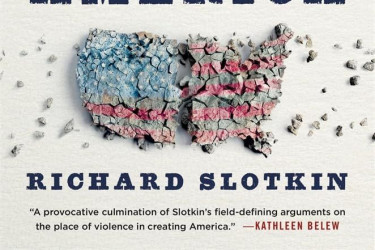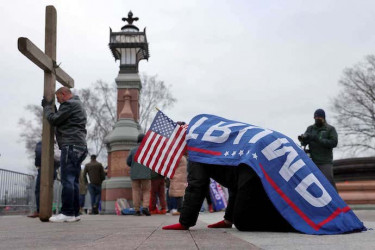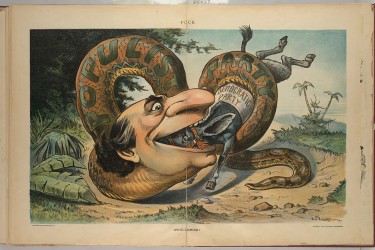As you explain, the theory that the 13th Amendment allowed for the functional re-enslavement of freed Blacks emerged not from professional scholars but from the incarcerated activist Lee Wood, in the 1960s. It was a powerful tool for consciousness-raising in that context.
I had no idea where it had come from initially. Within the academy, I traced it back to Angela Davis. She didn’t make that big a deal of it — it was a passing comment. A little hyperbole in an essay usually means nothing.
When I started going back and searching, I learned about Lee Wood, the guy who was in prison in California and said he discovered this. He had an epiphany when he read the 13th Amendment among a group of prisoners.
You could understand that. The claim by prisoners is, from the very beginning, a weapon in the struggle to change their world.
But the academics, the people who are paid for their thinking and research, are going along with the movement. They don’t seem to have a critical capacity to say: We see what you’re doing, but we differ with you.
Let’s say you’re an an academic who is committed to the goals of the activists. How do you advance those goals while also correcting the activists’ mistakes about the historical record?
There are various roles for a social scientist or a historian in a movement. Some people believe that the highest expression of intellectual life is to speak truth to power. I don’t believe that.
I believe that the highest role of an academic in a movement is to use your intellect to solve problems, in this particular case to solve the problem of mass incarceration. How do I find a legislative formula that works to get rid of mass incarceration? Is there something in policy circles? Does truth in that environment matter? If someone’s foot is on my neck, my goal is to get the guy’s foot off my neck. You need truth. You need to understand how the guy’s foot got on your neck, and how to use leverage to get the foot off your neck.
There are people on all points of the political spectrum now who are questioning the importance of truth. And if a lie will set you free, they will take the lie.
If I thought that lies would set you free, maybe I would go along with lies. But I believe that you’re not going to lie your way out of it; you’re going to think your way out of it.



















